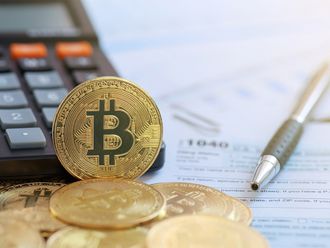Over the course of the go-go mid-noughties — or more specifically 2003-08 — Dubai enjoyed incredible double-digit growth. Following the annual meetings of the World Bank Group and the International Monetary Fund held here in September 2003, Dubai was finally anointed with the double-edged brand of emerging market. This was two weeks after the second anniversary of the 9/11 terrorist attacks in the US and the Saudi capital (significantly Dubai-bound) that quickly followed.
Of course, with this growth came inflation, a strained demographic imbalance and, for those who didn't exit before the merry-go-round stopped, negative equity.
This is not to say that the boom was completely bad for Dubai. Quite the contrary. Although Dubai had its share of esoteric developments, it still managed to expand its airline fleet, airport, port, utilities and build a world-class transport network.
The quality of life in Dubai will remain regionally unrivalled for some time.
On the eve of the opening of the Atlantis hotel on the Palm island, the Economist wrote a story that acknowledged the severity of Dubai's economic woes but drew a comparison with those of Miami in the late 1920s. Like Dubai, Miami was enjoying a speculative property boom (with popular off-plan sales and 95 per cent financing schemes) that came to an end with the crash of stock markets in 1929 and the Great Depression that ensued.
The story concluded that while Miami suffered greatly and many fortunes and jobs were lost, it would recover later in the 1930s, but had it not been for the over development that Miami underwent, it would not be the metropolis that it is today. It would be just another swamp town.
Considering how hard Dubai was hit, some believe that the economic crisis it experienced wasn't actually severe enough. Those who hold that view argue that Dubai Inc was able to get out of the crisis largely unscathed. After all, Dubai hasn't been forced to sell any of its good assets to pay for its bad debt. They argue that this is bad news for Dubai because it doesn't allow for a critical or reflective discourse on the Dubai model.
Entrepreneurial thirst
Good cities react, adapt and evolve. Good cities are not static. However, need drives innovation and when there is no need, there will likely be no innovation. After all, Dubai is the city that it is because it didn't have what its neighbour states had. Dubai is the only city that doesn't function as a rentier state. Dubai's continuous innovation and entrepreneurial thirst is what guarantees it that status.
Now, if faith in its property market's resurgence and tourism is going to allow for it not to rexamine its 2003-08 model, then I dare say property and tourism have become to Dubai what oil is to Saudi Arabia, effectively making it a rentier state. It is in this light that the Arab Spring is a mixed bag for Dubai. Aiding it on one hand in overcoming its short-term fiscal challenges all the while delaying its model's structural reforms.
Things have been largely quiet since September 2008, the month the crisis materialised. Tourism is down, trade was slow and real estate kept increasing in quantity but deflating in value.
Impact
Then came the Arab Spring. With Egypt in political flux, Syria in martial flux and Bahrain in sectarian flux, there's really nowhere else in the region for mid-income Saudi tourists to spend their pre-Ramadan summer vacation. Equally, with respect to High Networth Individuals (HNWIs) and their families in those countries undergoing an overdue political shake up, there are very few places that regionally appeal as Dubai does. Put those two Arab Spring byproducts together and you almost hear Dubai Inc saying, as it did in September 2008: "There was nothing wrong with my model, this was a global economic crisis."
And so while the Arab Spring has led to the surge in hotel occupancy rates, retail sales, restaurant bookings as well as property sales or leases and perhaps school and college enrolments and might be good for Dubai's economy (and my own apartment's value), I do wonder whether it will delay a long-overdue serious conversation on how Dubai should have reacted over the last two -and-a-half years and how it should now adapt and evolve into a brave new future. A future that recognises other more organic drivers of economic and social growth.
Mishaal Al Gergawi is an Emirati current affairs commentator.












